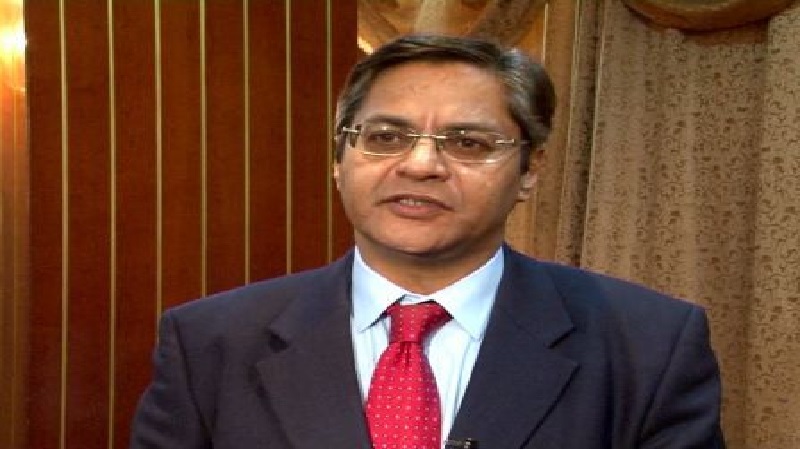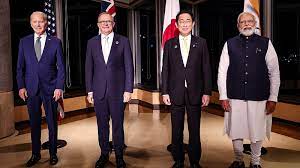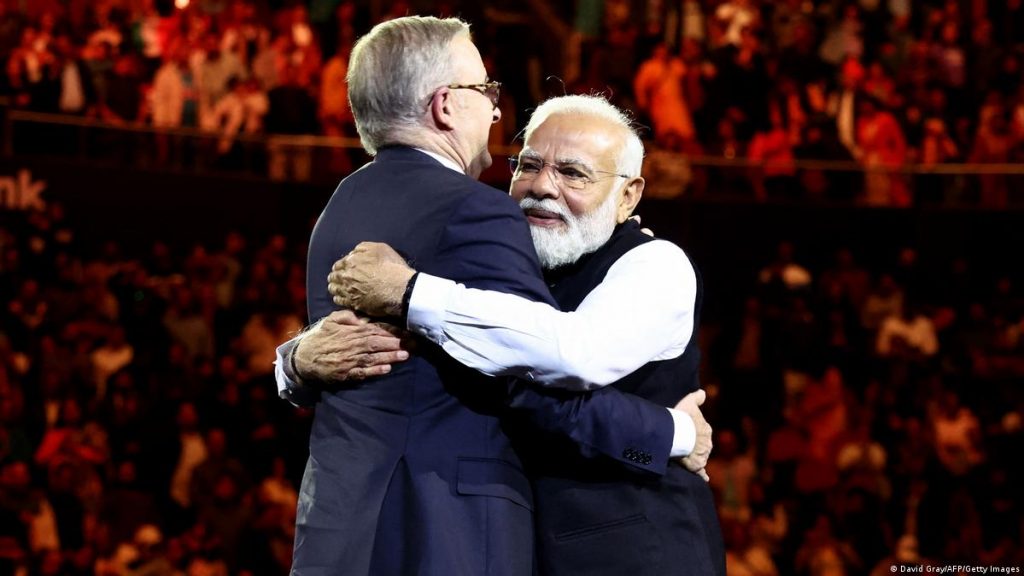SYDNEY: Prime Minister Narendra Modi’s ongoing visit to Australia has created quite a buzz in Down Under, and put the spotlight on this blossoming relationship between the two robust democracies and G20 economies. In this interview in Sydney with Manish Chand, CEO & Editor-in-Chief, India and the World and Centre for Global India Insights (CGII), India’s High Commissioner to Australia Manpreet Vohra shared his views about the Modi visit, the current state of the India-Australia relations, and the way forward for this mutually enriching partnership.
(Excerpts from the interview)

Q) What is the buzz about Prime Minister Narendra Modi’s visit to Australia? What is Australia expecting from this visit?
A) There are a lot of things that India and Australia are doing together and are attempting to do together. This is, in a sense, a follow-up from the visit of Australian Prime Minister Anthony Albanese to India in March. The two sides are continuing discussions in many areas. We expect that these will be taken further forward. The fact is that there is so much on the agenda bilaterally, between India and Australia, what we are doing already, what we wish to do more, all these are subjects for discussion, and there is great excitement about all this.
Q) On the economic side, the India-Australia relationship is finally picking momentum. What is the way forward for the long-negotiated Comprehensive Economic Partnership Agreement? Can we expect more Australian investment in the months to come?
A) We are committed to negotiating and concluding the Comprehensive Economic Cooperation Agreement (CECA) as the next step to the ECTA, which we signed and which went into force on December 29, 2022. Negotiations are already going on. They are going at a rapid pace; quite intensive discussions happening already between the negotiators of the ministries on the two sides. I am confident that we will see a conclusion of CECA possibly by the end of the year.
In days to come, we will see more trade and investment, more partnerships and more joint ventures. Earlier, there was a certain degree of prejudice here about India being a difficult place to do business. Those are old ideas and old impressions. The new India is something that is making waves here; we are trying to increase literacy among the corporate world over here about the new India, about the ease of doing business there, about the opportunities for Australian companies to do much more there profitably, increase their exposure to the Indian market in various ways.
Prime Minister Albanese, bringing a large business delegation to India with him when he came to India in March, and Prime Minister Modi now meeting the top business leaders of Australia in Sydney – slowly and steadily, all this will make a visible difference.
Q) Talking about the emerging areas of cooperation, how do you look at plans for scaling up defence and security cooperation. Are we looking at joint manufacturing of weaponry and Defence Technology Partnership?
A) This is something that we would very much like to see happen considering that our defence industry is now quite robust; there are a lot of new players manufacturing state-of-the-art platforms, and at very attractive prices as well. So, there are always those possibilities.
Further, there are research and innovating companies over here with some great technologies and products that we have and there again, Australia often suffers from the limitation of the market size. So, commercializing innovation doesn’t come easy to Australian researchers Australian R&D organizations and innovation companies. Therefore, by partnering with India, they can use the scale of India, making use of the low-cost manufacturing base of India, making use of the high talent pool – skilled engineers – we have. I would very much like to see some of these opportunities taken up by Indian and Australian companies jointly.
Indo-Pacific Connect
Q) On the strategic side, Prime Minister Modi and Albanese met at the Quad Summit in Hiroshima and the Indo-Pacific is an emerging arena for strategic coordination. What are the plans for enhancing cooperation with Australia in the Indo-Pacific?
A) With Australia, we are obviously cooperating very closely on defence and strategic affairs. We see eye to eye on both the challenges and the opportunities in the Indo-Pacific region. We have more and more joint exercises going on with Australia. There is a higher degree of trust and confidence in each other being built up. Australia will also be hosting the Malabar exercise this year. So, on the defence side, bilaterally there is a great meeting of minds.
In the Indo-Pacific, we are part of various maritime domain awareness initiatives, both as part of the Quad, as well as bilaterally. We are also trying to see what more we can do for the Pacific Island countries, which is a priority obviously for Australia being its near neighbourhood, but it is also a priority for us, which is reflected in the third FIPIC summit Prime Minister Modi co-hosted in Port Moresby, Papua New Guinea, before coming to Australia.
There could be areas which are of priority interest to our partners in the Pacific Island countries, where Australia and India could possibly even join forces and synergize their efforts and their resources to do what the Pacific Island countries would like us to do.

Q) Before coming to Australia, PM Modi participated in the Quad summit hosted by Australian PM Albanese in Hiroshima. If one reads Quad’s statement carefully, there’s a lot of talk about defending freedom of navigation, and the rules-based order. This seems to be targeted at China. Both India and Australia have a conflicted relationship with China. How do you look at India-Australia cooperation in ensuring freedom of navigation and defending the rules-based order.
A) The Quad’s statements and the Quad’s principles in the region are quite self-evident. It’s not a military grouping or a military alliance. We are getting together as a force for good to ensure the provision of global commons and public goods, good alternate options for development, infrastructure, healthcare, critical technologies, connectivity, and so many other areas. That’s what the Quad is doing collectively, and parts of that are also dependent on what countries like India and Australia can do bilaterally with each other as well.
Author Profile

- Manish Chand is Founder and Editor-in-Chief of India Writes Network (www.indiawrites.org) and India and World, a pioneering magazine focused on international affairs. He is CEO, Centre for Global India Insights, an India-based think tank focused on global affairs.
Latest entries
 India and the WorldFebruary 27, 2026Modi visit: India-Israel partnership enters a new era
India and the WorldFebruary 27, 2026Modi visit: India-Israel partnership enters a new era India and the WorldFebruary 24, 2026Unravelling Modi’s Israel journey: What to expect
India and the WorldFebruary 24, 2026Unravelling Modi’s Israel journey: What to expect India and the WorldFebruary 17, 2026South-by-South: Focus on people-centric solutions at India AI summit
India and the WorldFebruary 17, 2026South-by-South: Focus on people-centric solutions at India AI summit India and the WorldFebruary 7, 2026Modi hails interim India-US trade deal, Goyal says no concessions made on agriculture
India and the WorldFebruary 7, 2026Modi hails interim India-US trade deal, Goyal says no concessions made on agriculture








